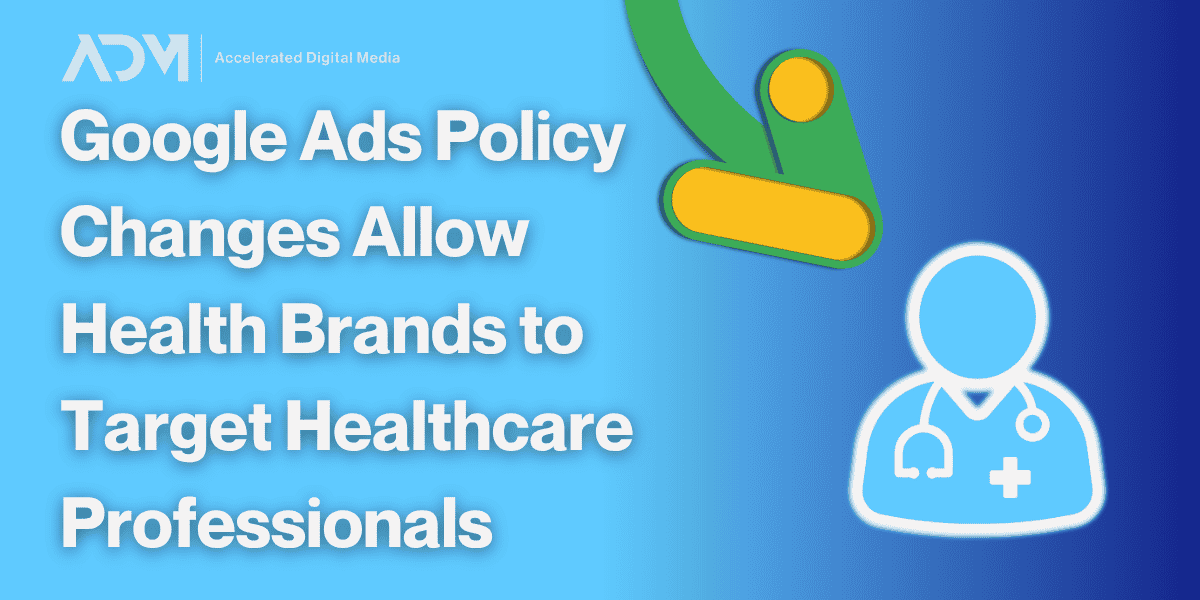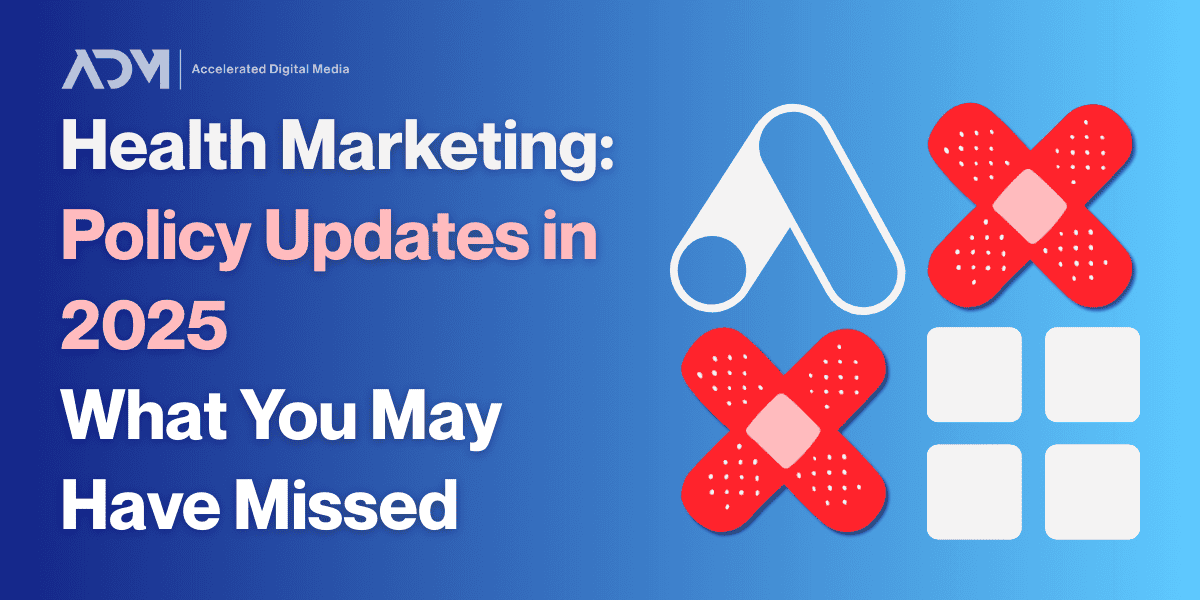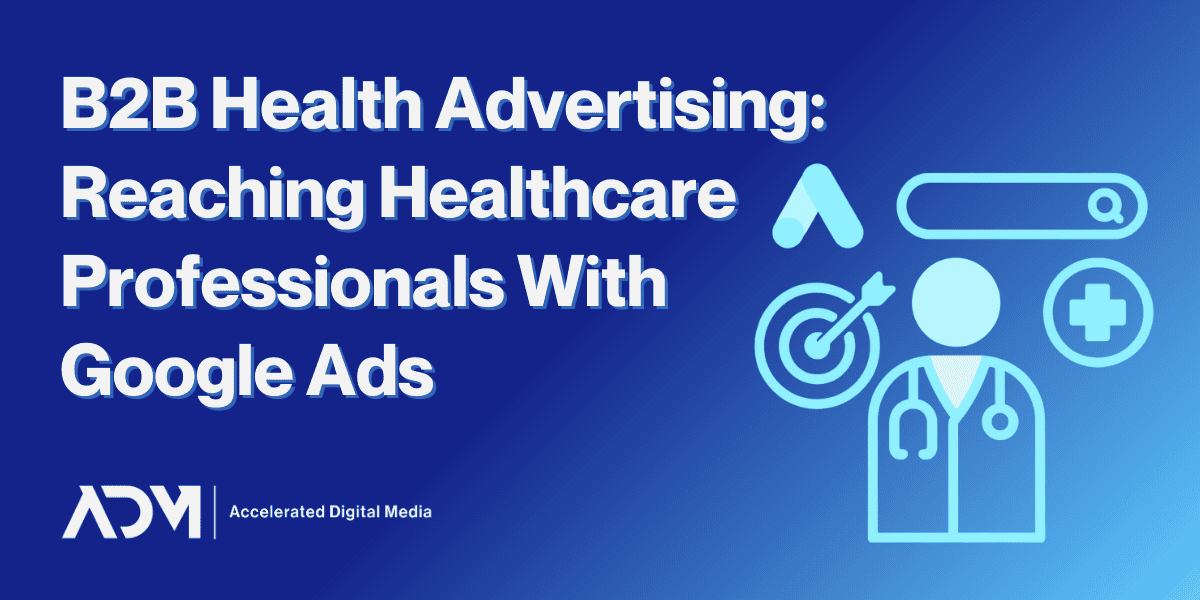Digital marketing platforms have a key obligation to put rules in place for how healthcare marketers can utilize their ad services—but they need to update them frequently to keep up with both their own technology and the law. Google’s latest health marketing policy update is a rare occasion where advertisers have had a functionality restored rather than restricted.
For healthcare entities targeted directly at consumers, platforms outlaw personalized targeting because it creates inevitable privacy violations. But not every healthcare brand works the same way—many are aimed at healthcare professionals themselves, either to support their job functions or raise awareness of services that could benefit patients. For those B2B health marketers, Google Ads recently made an update that might make their marketing much more effective.
A New Clarification in Google’s Personalized Advertising Policy
Historically, Google’s ad personalization rules have blocked sensitive health interest categories from being used for targeting. That hasn’t changed—but in May, Google clarified that these restrictions do not apply to campaigns targeting licensed healthcare professionals in their professional capacity. The changes will allow relevant advertisers to make use of both Remarketing and Customer Match lists.
Now, just as a restaurant supply brand might target an audience of restaurant owners and managers, a physician-focused health brand can now better aim their ads at their intended audience.
This change applies to ads that fall into both the existing general “Health” interest category and, as of July 2025, the “Restricted drug terms” category—though with some very important guardrails for the latter (as we’ll detail in the next section).
A New Certification for Restricted Drug Term Personalization
While advertising to physician audiences is now possible, the exception for drug advertising comes with a new process. Google has a very robust list of restricted drug terms. If your campaigns aim to advertise items on that list (think GLP-1s, prescription weight loss aids, etc.) toward healthcare professionals, you will need to apply for a new certification to take advantage of the targeting capabilities.
In that process, you must also confirm that the marketing information and practices (including customer lists, websites, and advertisements) comply with all state, federal, provincial and self-regulatory policies. Only certified advertisers that complete this process will be allowed to personalized ad tools when promoting restricted drug content to licensed professionals—something that was previously off-limits.
If you’re working with a healthcare marketing agency to run your advertising campaigns, that agency will need formal authorization. Google has provided a formal letter template that must be completed by the healthcare organization before Google will grant the agency permission to take advantage of personalized advertising. That letter must be added as a PDF during the healthcare-related advertising process.
Why These Google Health Policy Updates Matter
The primary concerns behind the prior broad-brush policies centered around HIPAA violations, because allowing Google Ads to synthesize a user’s online identity with a health action (like an appointment booking) would constitute sharing protected health information (PHI). But because a provider is not the end user of the health products in this context, online interest in that product does not imply any health conditions on behalf of a specific person, this exception makes sense.
Google is continuing to protect itself against the risk of brands misusing its tools to violate HIPAA, but it’s also reopening pathways for legitimate, compliant advertisers to reach relevant professional audiences. This opens up an enormous opportunity for those brands—if they go through the proper steps and stay on the straight-and-narrow.
Compliant healthcare marketing, at both the platform and legal levels, will always be a moving target. Changes are constant and can be dramatic (like this recent shift) or subtle (like the recent removal of melatonin from the Restricted drug terms list). Depending on your business, these updates can make a substantial difference—which is why it’s best to stay informed and nimble.
As both an experienced health marketing agency and a Google Premier Partner, ADM is committed to keeping client strategies up-to-date with the policies that impact their advertising. If you have any questions about these policies—or health marketing in general—don’t hesitate to reach out to the ADM team today:



